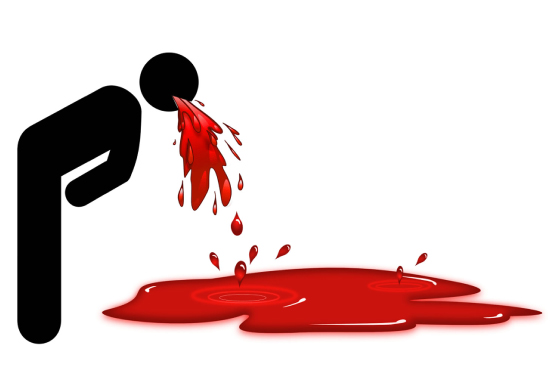- Vomiting of large amounts of fresh blood or clots
- Black and tarry stool

A backup of blood from the scarred liver (traffic jam causing portal hypertension) may cause the veins in the wall of the esophagus to enlarge. The esophagus is the swallowing tube that connects the throat to the stomach. The pressure inside the enlarged veins, called esophageal varices, is higher than normal. The increased pressure can cause the veins to burst, leading to sudden and severe bleeding.
Unless the varices break and bleed, you will have no symptoms. Signs of bleeding varices are life-threatening. You must go to the emergency room, immediately, if you have any of the following symptoms:
If you have liver disease that could cause varices to form, your doctor may recommend that you have an upper endoscopy test (EGD) to determine if varices are present and what their size is. Larger varices have a higher risk of breaking and bleeding. There are two main treatments to prevent bleeding:
